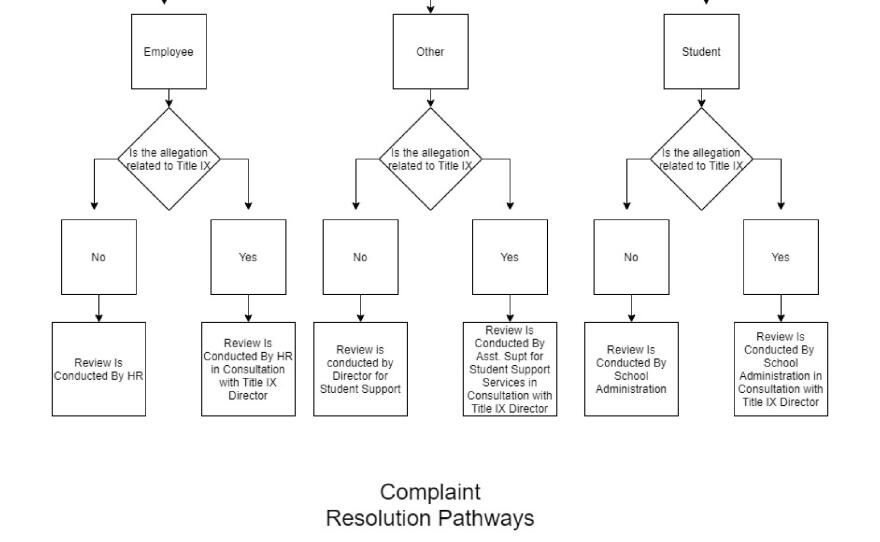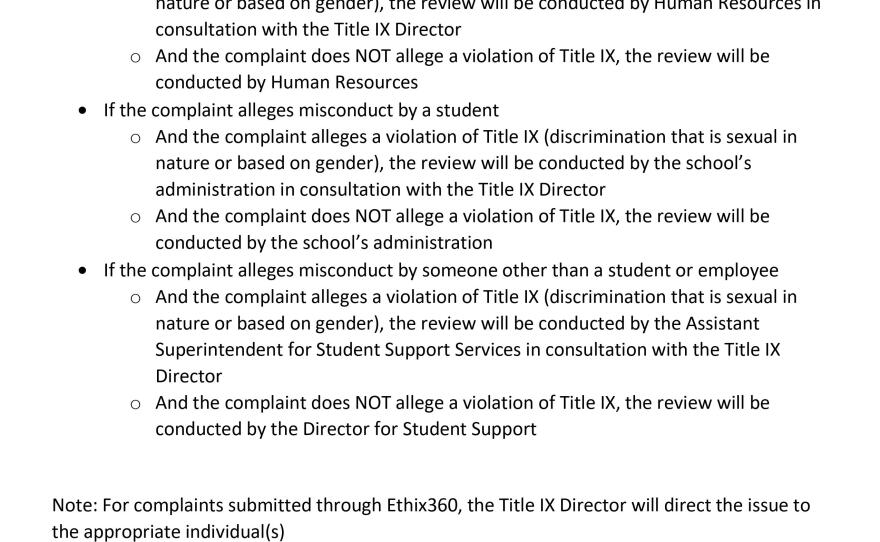The New Hanover County School system is facing at least two lawsuits and multiple questions about an alleged failure over decades to protect children from sexual predators. When he took the post as Interim Superintendent in February, Dr. Del Burns understood his top priority as the development of more effective protocols for complaints and misconduct.
WHQR spoke with Dr. Burns about the changes he says are needed.
RLH: If a child, for instance, felt uncomfortable around a particular teacher -- you know, there's a power dynamic there, what can the child do?
DB: Well, there are several things that a student could do. They could go into – they or their parents -- go into Ethix360 and file a complaint. That will follow the process where it starts with the Title IX Director reviewing and then assigning and then the case, if it involves an adult in the building, an employee, then it would be passed to Human Resources. And if it's Title IX-related, then Human Resources personnel would consult with Jarelle Lewis, the Title IX Director, to make sure that Title IX requirements are being addressed, and any issues there or if they're present, then they're going to be part of the resolution.
If it's not Title IX-related, then HR will conduct the review and, part of what we're looking at is adding some personnel. An investigator will be employed in the coming weeks in HR. And an investigator will be hired in Title IX over the summer to support the review process.
RLH: And what if as a student, I'm concerned about reprisals. Let's say I make a complaint and I do it anonymously, but I'm still concerned that somebody might find out that I'm the one that made the complaint.
DB: That's always a concern. And addressing that through the training for administrators and for others to indicate that retaliation in any form or fashion will not be tolerated. That, employees have to understand their role. And for students it is a very difficult thing to make a report, especially when it involves someone who, as an employee, that they feel might have authority over them or might actually have authority over them. That's part of the culture shift that needs to occur and the training will help support that. And going forward that would be really important to maintain that position, that retaliation is absolutely not accepted under any circumstance.
RLH: What kinds of training around changing the culture, not just the protocols that you're putting in place and the new processes, but just actual kind of changing the way people think about this. What, where is that happening?
DB: It starts with the structure that's put in place. And we have started that. There's still some things that need to be reviewed after the processes are working for awhile, but structure helps define that. The training, being ongoing, is very necessary. There’ll need to be at some point in the future, I have suggested in probably six or seven months to review the structure and the processes again to be sure that they're as they need to be going forward. It takes time to change culture. I do have a strong sense that in this particular case in new Hanover County schools, there's a desire for things to be different, a very strong desire.
RLH: If you could articulate the biggest cultural shift in this, how would you characterize it?
DB: It's not just in New Hanover County schools, it's nationwide. The #METOO movement has raised awareness and I think that's a very good thing.
--------
More on the new process school officials are rolling out to change the culture:
The solution, according to Interim School Superintendent Del Burns, is beefing up resources, training, and accountability. Burns has hired two interim human resources staffers and says he plans to hire more – including an investigator in the Title IX Department and an investigator for Human Resources. He says past problems stem from insufficient training and inconsistencies in the reporting and resolution process.
"The integrated and aligned aspect of Title IX, Human Resources, and Student Support Services is something that has not been present in the past. The training that's going to be required is going to be necessary and ongoing and that will start in the coming weeks. We still have work to do around that area."
Burns says having an auditor review records regularly will be a piece of the accountability puzzle. He also advises a review of the new protocols in six to seven months. The larger cultural change that the new processes are designed to address will take time. But, he says, he’s confident he’s working with a staff eager to make the necessary changes to keep students safe.



